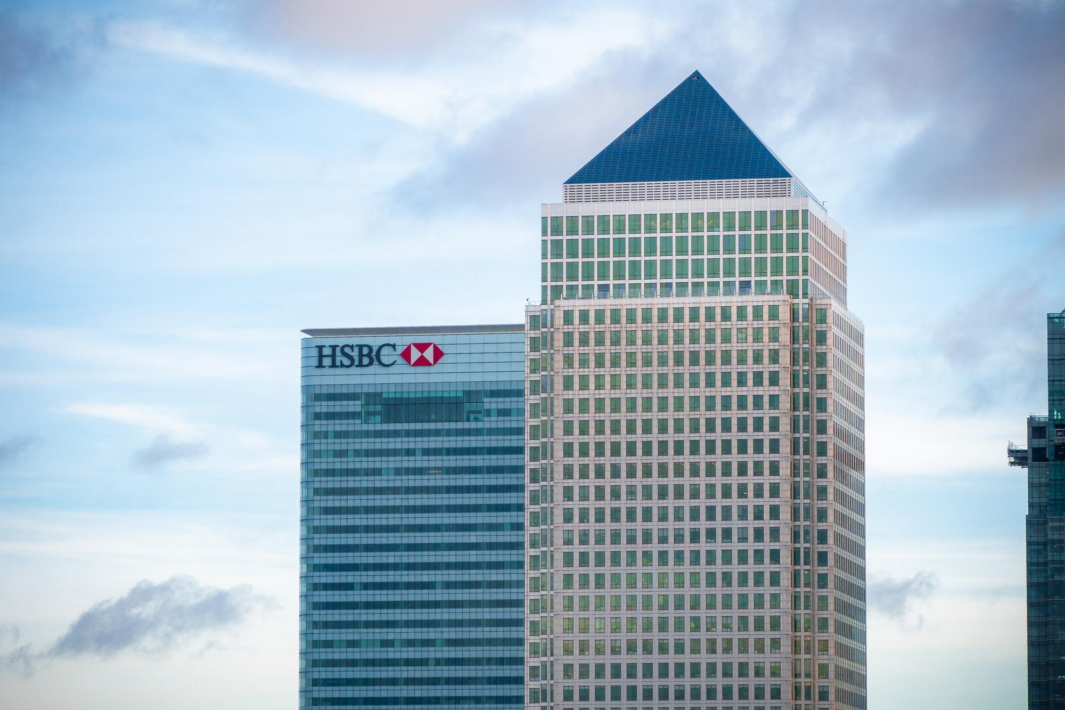HSBC has big ambitions, just not in all markets. The decision to retrench from investment banking in the west comes as a result of declining market share from those units, with the hope the money can instead be diverted towards Asia.
This should come as no surprise. While HSBC’s decision to wind down its equity capital markets and mergers and acquisitions advisory businesses in the UK, Europe and Americas was unexpected for some, activity in those regions accounted for just 0.3 per cent of the bank’s revenues globally.
Investment banking as a whole, meanwhile, made up just 6 per cent of HSBC’s total revenues in the first half of last year, according to the bank’s interim report.
Indeed, in a memo sent to all staff, Michael Roberts, chief executive of HSBC Bank, made it clear the resources will be rerouted and “focused in areas where we can best serve our corporate and institutional clients”. Staff working in the departments set to be mothballed will be given the opportunity to work elsewhere.
This fits into group chief executive Georges Elhedery’s plan to simplify the lender’s operations, with falling interest rates serving as a catalyst for that change.
Announced in October 2024, just six weeks after Elhedery took over as CEO, the bank split its business into eastern and western markets, with a standalone UK division, and an eastern markets division run out of Hong Kong. A division to cover international wealth and premier banking was created as well as a silo for corporate and institutional banking to cover wholesale operations in the UK, Europe, North America and Latin America.
Losing ground in investment banking
One of the major issues HSBC faces is the fierce competition from US rivals, with American banks dominating ECM. In fact HSBC did not even appear in the list of top 10 banks for global ECM revenue in 2024, according to data from Dealogic.
Samuel Kerr, global ECM editor for Ion Analytics, says the shrinking number of initial public offerings in Europe has left banks fighting over a smaller pool of revenue.
“This has been worsened by fewer underwritten rights issues that have historically been a major revenue booster for European banks,” he says. “A smaller pie has been worsened by the dominance of a handful of large American institutions, who not only dominate the US market, but also European ECM.”
So will others follow HSBC’s lead and quit? Commentators think not. Kerr says: “IPO markets are expected to pick up this year in both Europe and the US and an uptick in M&A activity will likely lead to equity financing by some companies, highly lucrative work for investment banks.
“HSBC clearly has its own strategic reasons for what it is trying to do but, for now at least, I don’t think it is the start of a major trend.”
Vitaline Yeterian, senior vice-president, European financial institution ratings at Morningstar DBRS, agrees, saying it is “unlikely other banks will follow HSBC because the current environment is supportive of solid performance in [investment banking] activities”.
Rather, Yeterian believes HSBC’s departure from Europe and the UK could open up opportunities for some European banks. Barclays and BNP Paribas both gained market share in 2024, ranking fifth and eighth respectively for ECM volume in Europe, the Middle East and Africa. In terms of ECM revenue, Barclays rose to fourth in 2024 from eighth in 2023. BNP Paribas was eighth, up from 12th in 2022.
HSBC performed better in IPO volume data, coming sixth for global IPO volume and second for Emea IPO volume in 2024. However, it did not appear in the top 10 for the 2024 global, Emea or UK M&A Dealogic rankings.
Again, Yeterian points to European houses as potential beneficiaries with BNP Paribas in the top 10 for Emea IPO volume and revenue as well as for M&A revenue, while UBS was in the top 10 for Emea IPO and Emea M&A revenue. Barclays was sixth for UK M&A revenue.
Pivot to Asia
So why Asia? In short, growth.
The shift allows HSBC to realign with its traditional markets and focus on product areas — and geographies — that generate the most income. In the bank’s third-quarter earnings release, its most recent report, wealth management was highlighted as a major driver for growth. In the nine months to the end of September 2024, the bank attracted net new invested assets of $59bn, with $49bn booked in Asia.
Lawrence Loh, professor in practice of strategy and policy at National University of Singapore Business School, says: “HSBC needed to reorganise its resources. It cannot be everything to everybody in all global markets.”
He says the potential for growth in Asia makes restructuring east a “logical” move, adding that the shift would have also been heavily influenced by Ping An Bank, a key shareholder in HSBC, which has long been keen for the bank to push deeper into Asia.
And there are multiple areas across Asia on which the bank may decide to focus. In China, Loh sees opportunities in investment banking, as Chinese companies looking globally are in need of restructuring and M&A support. He says there are also opportunities in wealth management, as some individuals “might prefer to park their funds with a global entity than with a local one, for mobility reasons or privacy”.
India is another potential growth market in terms of wealth management. HSBC will be able to leverage its brand, according to Loh, as it has greater prestige than some local wealth management players.
South-east Asia too has growth potential, with Loh pointing to Indonesia in particular. The country’s ongoing mega projects and the relocation of capital is opening up investment opportunities, with developments around restructuring and M&A.
A broader approach across the region will also help relieve the pressure on Hong Kong, with the danger of a “concentration risk”, according to Gaurav Arora, global head of competitor analytics at Coalition Greenwich. Hong Kong generates just over half of the bank’s profits before tax, seeing $16bn in the nine months to end September 2024.
However, the territory is undergoing challenges. The Hong Kong Stock Exchange was the worst performing bourse in the world in 2023, having lost $13bn in market capitalisation. The real estate sector is also undergoing shocks, with property prices falling and New World Development, one Hong Kong’s largest property developers, rumoured to be on the brink of default after reporting a $2.5bn net loss for the year ending June 2024.
Yet withdrawing resources from the west may create some issues for the bank should its clients start to look outside of Asia, says Arora.
“The challenge is if there is a private equity company in the US looking to invest into semiconductors in Taiwan; for example, the bank misses advising the buyer. There will be a lot more US inbound and outbound flows of capital and M&A in 2025 which they might struggle to capture with reduced coverage in the west,” he says.
Arora predicts the bank will likely look at supporting corporates as they move forward with their overseas ambitions.
“We expect HSBC to double down on its corporate and commercial banking activity, especially covering the mid-cap sized companies across markets like India, China, and across south-east Asia, as this accounts for a huge portion of their profits. As these companies become more export-orientated, HSBC will benefit,” he says.
The Middle East is also of strategic importance for HSBC, with the three years Lebanese-born Elhedery spent as CEO for Middle East, north Africa and Turkey likely to raise the region’s profile within the bank.
The grouping of Middle Eastern and Asian businesses into the bank’s new “eastern markets” division is cause for excitement, says Arora, as the bank seeks to take advantage of the growing corridors between the regions. “I think they are slightly ahead of the rest of the market in actually making it one region,” he says. “Integrating the regions helps them to map the corridor, and incentive structures are aligned under co-CEOs Surendra Rosha and David Liao.”
The story was originally published in The Banker.





